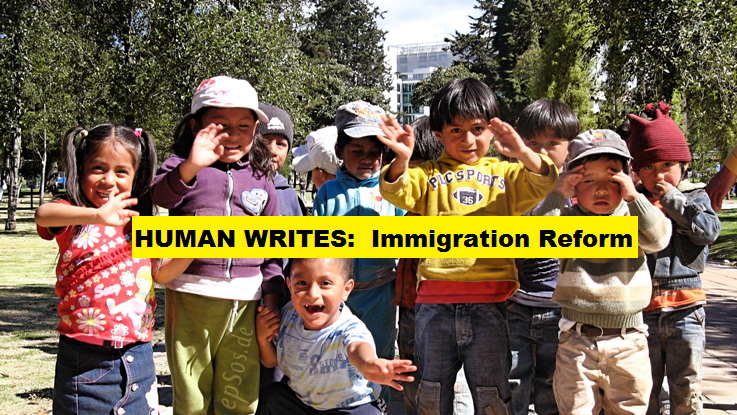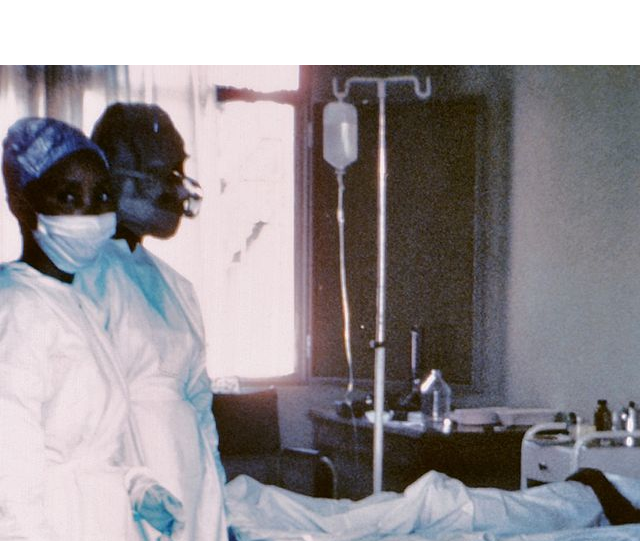 May 4, 2014
May 4, 2014
Dayna Blackwell
News Writer
Human Writes
A teenage African-American boy is returning home from a quick trip to the convenience store around 7 p.m. on a Monday night. There appears to be nothing unusual about this quiet solemn evening. Yet, as he strolls through his neighborhood with his new purchases in tow, an older Hispanic male spots him and immediately phones the police. Despite the officers’ orders not to follow the boy, the man pursues him on foot. As the teenager comes within yards of his home, the 911 call drops and shots are fired. The unarmed teenager is left lying dead on the ground.
This eminent story of the shooting of 17-year-old Trayvon Benjamin Martin is echoed by another 2012 incident in Florida, in which a young, black, unarmed teenager was gunned down. Defendant Michael Dunn was recently charged with attempted second-degree murder and first-degree murder after firing ten shots into an SUV filled with black teenagers, leaving one dead, less than a year after George Zimmerman was acquitted of the murder of Martin. Dunn’s recent trial has sparked national attention after a hung jury was unable to hand down a verdict on the first-degree murder charge in the death of Jordan Davis.
The whirlwind response to these two cases evoked a national divide on the issue of race, in particular the targeting of young black men. Conflicting opinions have come forth across the country, sparking a media frenzy, so much so that even those who spoke out have become the topic of controversy.
In light of the backlash, opinion writer for the Washington Post, Eugene Robinson, wrote an article titled “I’m black, don’t shoot me,” which was published on February 20, 2014, four days after Michael Dunn’s trial produced a guilty verdict on three attempted murder charges, but a hung jury on the first-degree murder charge. The very first line of the article reads: “Sometimes, when I’m in my car, I crank up the music pretty loud. All you Michael Dunns out there, please don’t shoot me.” In reference to the killing of Davis by Dunn, Robinson went on to say, “Dunn complained to the teenagers about the music. They turned it down, then turned it back up again. I’m not aware of any law that says young black men have to follow orders from every random white man who comes along.”
As the article goes on, Robinson touches on the negative stereotypes facing young black males in our nation today and how these stigmas have led to tragedies such as these. The article addressed one particularly disturbing matter when Robinson pointed out the fact that according to police documents, Dunn and his fiancée returned to their hotel room after the shooting, “Where they spent the evening eating pizza and drinking rum and cokes.”
Robinson concluded his article with this note: “While Michael Dunn was in jail awaiting trial and authorities were recording his phone calls, he said to his fiancée, “When the police said that these guys didn’t have a record, I was like, ‘you know, I wonder if they’re just flying under the radar. Because they were bad.’” What he meant by “bad,” evidently, was “young, black and male.” It was this assumption that killed Martin and Davis — and that surely will kill again. We don’t just have to change laws. We have to change hearts and minds.”
As of February 27, 2014, “I’m black, don’t shoot me” had accumulated 3,039 comments on the Washington Post website. The variety of responses to Robinson’s article could go toe-to-toe with the reactions to the murder trials themselves. Some dripped with sarcasm, while others took a more political and/or subjective viewpoint. One particular response used the “Knockout Game,” (a game where people – usually teenagers – approach random strangers, punch them in the face and then flee) which has been gaining heavy notoriety in Washington, D.C., as a platform. This responder wrote:
“What a one-sided article. How about one like this…I’m white, don’t play the knock out game on me…Please don’t play the knockout game on my sons, or me, or my brothers-in-law, nephews, nephews-in-law or other male relatives. Check your facts; more crimes are perpetrated against whites from blacks than vice versa. The difference is that when a white kills a black it makes national news – not so if blacks kill whites. I don’t read your articles every day, but don’t believe I’ve seen one on you condemning the knockout game.”
Media blogger Greg Pollowitz’s response to Robinson, which was highlighted on National Review Online, went on to negate much of Robinson’s testimonials using a table citing FBI crime statistics. Pollowitz went so far as to say that “The Washington Post’s Eugene Robinson is afraid of getting shot by a white person in the wake of the Michael Dunn and George Zimmerman verdicts.” His response went further with these comments aimed at pointing out falsities in the notion that “violence against black men is out of control.” He said:
“Out of control?” Hardly. I get the anger over the verdict, but to pretend that a Wild West atmosphere exists where whites are shooting African-Americans willy-nilly fails to account for, well, reality. Here are the actual numbers from the FBI’s 2010 crime statistics…What these numbers do show is that it’s black-on-black violence that is ‘out of control.’”
Another responder to Robinson’s article wrote, “Both Zimmerman and Dunn, are PUNKS and BULLIES, who demonstrated the kind of cowards they were in court by publicly claiming how SCARED they were when they KNEW they were able to use deadly force.” Still another person commented:
“’Bad behavior’ is something white people attribute to black people, no matter what they’re doing. In fact, you don’t need a reason. Any behavior, no matter how nebulous, a black person engages in is offensive, because all you have to do is be black. Of course, white people never play their music loud. They always say ‘please’ and ‘thank you.’ They never flip you off on the highway. They always open doors for you and call you ‘ma’am.’ They never use the f-word. Heck, they never curse. They never wear hoodies or drive four-teens-to-a-car. They never laugh out loud in public. They never drink until they are drunk. They never use guns to kill people in theaters or in schools. They never start unnecessary wars. Why can’t black people be more like that?”
These murder trials speak volumes to matters of our rights as human beings. A battling opinion of right vs. wrong, black vs. white and stereotype vs. stereotype has been on a downward spiral since the conclusions of these two trials. How far is too far when someone believes that their safety is being infringed upon? Or do these scare tactic defenses hold any clout whatsoever? While Michael Dunn may still be facing ample prison time, George Zimmerman was set free and a hung jury was unable to reach a verdict in the murder of Jordan Davis. This has a left a stain on the nation that will undoubtedly stir up controversy for many years to come.
In these two cases, much like any other human rights cases, the verdicts reached in the courtroom have left everlasting effects on those who witnessed it. All too often, instances such as these those whose human rights have been systematically violated are not present to speak for themselves. Jordan Davis and Trayvon Martin are the two voices in these cases that will never be heard. They never had the chance to take the stand and testify to their side of the story. Instead, we are all left questioning if these cases are a horrifying trend or just tragic and unfortunate scenarios. Regardless, just because a courtroom declares “case closed” does not mean that the entire issue is.




